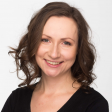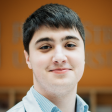3. martā notiks Doktorantūras skolas vebinārs Novel morbid genes discovery strategies doktorantiem un zinātniekiem, kuri strādā cilvēka ģenētikas jomā.
The rapid development and application of the next generation sequencing (NGS) techniques over the last decade have lead to the identification of hundreds and thousands of genetic variants and novel morbid genes. However, there are still lots of “hidden treasures“ within the NGS data that await their discovery. In this seminar, we will give an overview of the most common strategies for the identification of novel morbid genes for a single patient (N=1) cohort, as well as small and large patient cohorts, as well as for both common and rare disorders. The seminar will include a series of short theoretical lectures and a hands-on training at the end of the seminar, using a real world example from the clinical practice.
- Programma (provizoriska)
15.00–15.10 The definitions of morbid genes 15.10–15.45 An overview of the gene discovery strategies with examples 15.45–16.15 Bioinformatics gene discovery approaches 16.15–16.45 Databases for the candidate gene discovery approach 16.45–16.55 Jautājumi un atbildes 16.55–17.05 Pārtraukums 17.05–17.15 Summary of the possible gene discovery strategies for N=1 and a presentation introducing the clinical case for the hands-on training 17.15–17.40 Hands-on training 17.40–18.00 Discussion of the clinical case and possible gene strategies
Lektori
Dr. Baibai Vilnei ir vairāk nekā 10 gadu pieredze uz personalizēto medicīnu orientētajā bioinformātikā, analizējot genoma datu (čipus, VES / VGS), transkripcijas un mikrobioma datus. Viņas galvenais fokuss ir integratīvā multiomikas datu analīze, sākot no divu tipu datu integrācijas (piem., ekspresijas kvantitatīvo pazīmju lokusi; eKPL), kam seko gēnu koekspresijas tīklu / moduļu detekcija, saistot tos ar klīniskajiem, kā arī vides un dzīvesveida informāciju.
Dmitrijs Rots ir pētnieks Radbauda (Radboud) Universitātes Medicīnas centrā Nīderlandē, kur patlaban studē doktorantūrā cilvēka ģenētikas jomā. D. Rots ir absolvējis Rīgas Stradiņa universitāti (RSU) Medicīnas fakultāti un kopš 2013. gada strādā molekulārās ģenētikas jomā. Ar nākamās paaudzes sekvenēšanas datiem (NGS) sācis strādāt 2018. gadā, kad RSU Molekulārās ģenētikas zinātniskās laboratorijas vajadzībām tika ieviesta gan NGS bioinformātiskā analīze, gan datu klīniskā interpretācija. D. Rota pētnieciskās intereses ir retas pārmantotas slimības..




